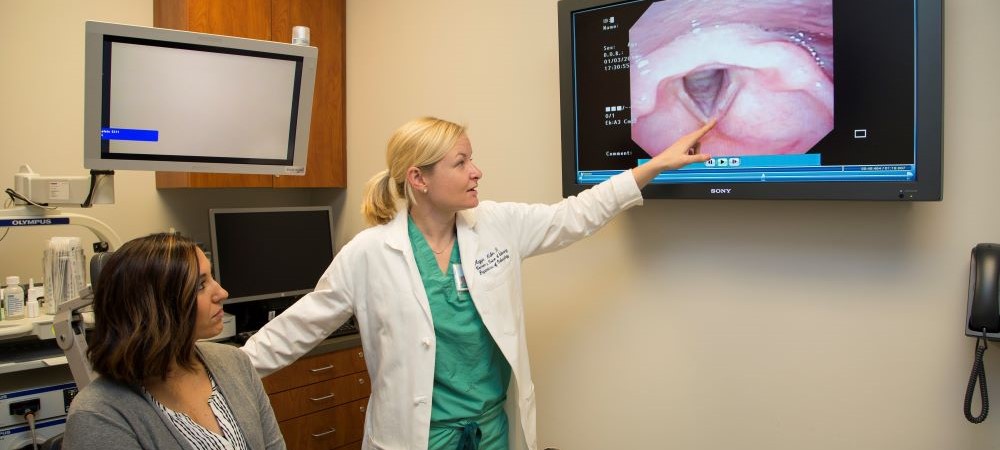Checking out the Area of Otolaryngology: What to Expect When You Get In Touch With an ENT
Otolaryngology, commonly described as ENT, encompasses the diagnosis and treatment of nose, throat, and ear problems. For those experiencing associated concerns, getting in touch with an ENT expert can give quality and relief. Comprehending what to expect during such consultations is essential for effective interaction and treatment. This overview will certainly lay out crucial aspects of the ENT experience, consisting of usual reasons for visits and the procedures entailed in diagnosis and therapy.

Recognizing Otolaryngology: An Overview
Otolaryngology, frequently referred to as ENT (Ear, throat, and nose) medication, is a customized branch of medicine that focuses on the diagnosis and treatment of problems impacting these essential locations of the body. This area includes a variety of problems, including those pertaining to hearing, equilibrium, respiratory system function, and speech. Otolaryngologists are trained to take care of both clinical and surgical therapies, using advanced methods and innovations. Their proficiency prolongs beyond traditional disorders, addressing problems such as allergic reactions, sinus infections, and hearing loss. Furthermore, they play an important duty in the monitoring of head and neck cancers cells, supplying detailed treatment tailored to specific patient requirements. Overall, otolaryngology continues to be essential for keeping wellness and lifestyle in affected people.
Typical Reasons to See an ENT Expert
Several people seek the know-how of an ENT professional for a range of reasons, reflecting the varied nature of conditions that influence the ear, throat, and nose. Typical concerns consist of persistent sinusitis, which typically brings about consistent nasal blockage and face discomfort. Allergic reactions and their connected signs and symptoms, such as sneezing and itching, likewise prompt brows through to these professionals (Otolaryngologist). Hearing loss, whether gradual or sudden, is an additional significant reason for consultation. On top of that, individuals might seek examination for throat conditions, including persistent hoarseness or ingesting difficulties. Sleep apnea, identified by interrupted breathing during sleep, is regularly addressed by ENT specialists also. Each of these conditions highlights the relevance of specialized treatment in taking care of complex ENT-related health problems
Planning for Your ENT Consultation
When planning for an ENT consultation, it is vital to gather appropriate details and consider any type of certain problems. People should put together a detailed case history, including previous ear, nose, or throat problems, surgeries, and current medicines. Documenting signs and symptoms-- such as regularity, duration, and extent-- can offer beneficial understandings for the ENT specialist. In addition, people must prepare a listing of concerns they want to ask, ensuring that all issues are dealt with during the browse through. Bringing along any kind of relevant medical documents or test results can even more aid the ENT in recognizing the person's condition. Clients ought to validate their appointment information, including time, day, and place, to lessen any last-minute complication. Appropriate preparation can improve the performance of the consultation and cause much better outcomes.
What to Expect During the Consultation
As the consultation begins, the person can expect to engage in a complete conversation with the ENT professional concerning their signs and case history. The specialist will certainly ask about the duration, regularity, and intensity of signs and symptoms such as hearing loss, nasal congestion, or sore throat. In addition, the client's previous medical problems, medications, and any kind of relevant family background will be reviewed, aiding the specialist in forming nasal drip throat a total understanding of the person's wellness. The ENT might likewise ask regarding lifestyle factors, such as exposure to irritants or toxic irritants. This open dialogue develops a structure for the appointment, ensuring that the person's concerns are addressed and establishing the phase for any type of essential evaluations or suggestions for therapy.
Analysis Tests and Treatments in Otolaryngology
A variety of diagnostic examinations and procedures are crucial in otolaryngology to precisely review and detect conditions impacting the ear, nose, and throat. Typical tests consist of audiometry, which measures hearing function, and tympanometry, evaluating middle ear stress. Nasal endoscopy permits visualization of the nasal passages and sinuses, while laryngoscopy takes a look at the throat and vocal cords. Imaging strategies, such as CT scans and MRIs, give thorough sights of head and neck structures. Allergic reaction testing may likewise be conducted to recognize triggers for sinus or respiratory problems. These diagnostic tools allow ENT specialists to develop a comprehensive understanding of individuals' conditions, guaranteeing tailored and reliable administration plans. Proper medical diagnosis is crucial for successful therapy results in otolaryngology.
Treatment Choices Provided by ENT Specialists
ENT experts offer a range of treatment alternatives customized to address details conditions impacting the throat, ear, and nose. These therapies range from traditional strategies, such as medicine and lifestyle adjustments, to even more intrusive procedures. As an example, allergic reactions may be managed with antihistamines or immunotherapy, while chronic sinusitis might call for nasal corticosteroids or sinus surgery. For hearing loss, ENT professionals frequently suggest listening devices or surgical interventions like cochlear implants. In instances of throat problems, alternatives can consist of see page speech treatment or operations to eliminate obstructions. In addition, they might provide advice for managing rest apnea, including the use of CPAP devices or surgical treatments. In general, the goal is to enhance people' quality of life with customized treatment and efficient therapy approaches.
When to Look For Follow-Up Care With an ENT
Acknowledging when to seek follow-up care with an ENT specialist is essential for handling ongoing signs or issues connected to ear, nose, and throat conditions. People ought to consider arranging a follow-up consultation if signs and symptoms continue in spite of first treatment, such as chronic ear pain, nasal congestion, or throat discomfort. Changes in hearing, equilibrium issues, or unusual nasal discharge may also necessitate further analysis. Furthermore, if a client experiences adverse effects from recommended medications or has actually undergone a surgical treatment, follow-up treatment is necessary to monitor recuperation and resolve any type of problems. Timely consultations can guarantee reliable administration of problems, prevent possible difficulties, and provide satisfaction relating to one's health. Seeking follow-up treatment promotes proactive wellness management in otolaryngology.
Often Asked Questions

What Credentials Should I Search for in an ENT Professional?
When seeking an ENT professional, one should seek board certification, relevant experience, and solid person testimonials. Additionally, efficient interaction skills and a caring technique can significantly boost the overall treatment experience.
How Do I Pick the Right ENT for My Needs?
Selecting the ideal ENT expert includes examining their credentials, experience, and individual reviews (ENT surgery). It is important to consider their interaction style and approach to therapy, ensuring they align with the individual's certain wellness needs and preferences
Exist Any Kind Of Dangers Connected With ENT Procedures?
The dangers connected with ENT treatments may consist of infection, bleeding, anesthetic issues, and prospective damages to surrounding frameworks. Patients should go over these dangers with their physician to understand specific issues and assurance informed choices.
Exactly How Can I Take Care Of Anxiety Prior To My ENT Appointment?
To take care of anxiety before a visit, people can exercise deep breathing workouts, visualize positive end results, prepare inquiries in breakthrough, and look for assistance from good friends or family, promoting a feeling of peace of mind and peace.
What Should I Do if I Experience Adverse Effects From Treatment?
If side impacts from treatment take place, the person should promptly report them to their doctor. Changes to treatment or extra interventions might be essential to ensure safety and security and performance in handling their condition - Otolaryngology. As the assessment begins, the patient can anticipate to engage in a comprehensive discussion with the ENT expert about their signs and clinical background. These diagnostic tools allow ENT professionals to develop a detailed understanding of people' conditions, ensuring tailored and reliable administration plans. ENT professionals offer a range of treatment choices tailored to attend to specific conditions affecting the throat, nose, and ear. When seeking an ENT professional, one should look for board certification, relevant experience, and solid patient evaluations. Choosing the best ENT expert entails examining their credentials, try these out experience, and individual reviews